The San Jose Sharks didn’t so much outplay the Anaheim Ducks in Game 1 of their opening-round playoff series, they outpoised them. The Sharks posted a 3-0 win in Anaheim to take a 1-0 series lead.
Methodical Start
In the opening period, neither team managed more than a couple of scoring chances. Neither team allowed the other anything easy. It had all the earmarks of typical Ducks-Sharks matchup, the sort of low-scoring game where opportunities are few and far between – and where the intensity builds minute-by-minute.
Knowing the low-scoring history between the teams, it’s obvious neither team wanted to fall behind by giving up the first score. Many times, games between these teams, while intense, are almost methodical until something breaks.
The Ducks Break
The second period is when something did break, and it proved decisive.
The Ducks simply lost their poise and the Sharks took full advantage. The pivotal moment came just over six minutes into the period. Ducks forward Andrew Cogliano took an unnecessary penalty for slashing. The Sharks’ long-struggling power play took to the ice and for some reason, the Ducks decided playing just one man down wasn’t enough. Seconds into their penalty kill, Ryan Getzlaf slashed the hand of Kevin Labanc, and the Ducks were down a pair. Truth be told, the referee had a choice of which penalty to call against the Ducks, with Brandon Montour tripping Joe Pavelski at the same time.
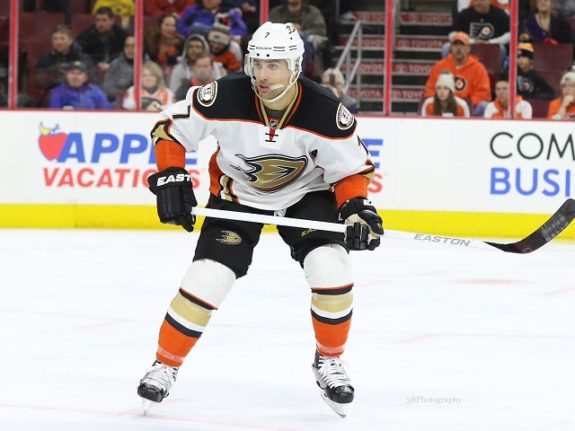
The Sharks may struggle with a man-advantage, but they were fine with a two-man advantage. Even here, the Ducks made a helpful mistake. The Sharks’ Tomas Hertl took the puck behind the Ducks’ net and when pressured, moved the puck to Joe Pavelski, also behind the goal line on the back side of the play. A Ducks defender attempted to pressure Pavelski, meaning two Ducks defenders were behind the goal line and only one Ducks defender was left to defend the three Sharks in front. Pavelski quickly spotted Evander Kane alone in the slot. A crisp feed enabled Kane to take a point-blank shot, and Ducks goalie John Gibson simply had no chance. The result was the opening goal in the series.
Alas, the Ducks’ errors continued. Minutes later, a poor Ducks line change allowed the Sharks a 3-on-1 break and once again, it was a crisp Pavelski feed to Kane for the goal. Gibson was hung out to dry yet again.
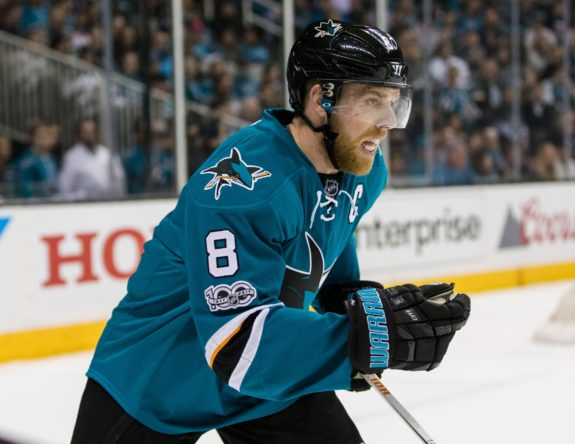
The third Sharks goal came following a battle in the slot area. Several players battled in a scrum before the puck was pushed out towards the blue line. This is where Brent Burns pounced. The defenseman got quickly to the puck and his quick shot, while not the laser Burns often fires, found its way between a swarm of players and past Gibson.
The Ducks, down by a 3-0 count with under 25 minutes left, further aided the Sharks by taking more foolish penalties. Shortly after going down 3-0, Corey Perry went into Sharks goalie Martin Jones and came out of the ensuing scrum with a roughing penalty. In the third period, Ryan Kesler interfered with Logan Couture and the officials sent him to the box. Down three goals, the way back rarely involves taking foolish penalties.
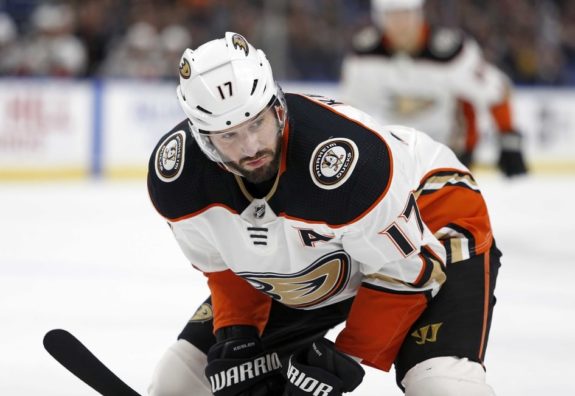
The Ducks’ lack of poise contrasted with the Sharks, who played a steady and efficient game. Truth be told, the Sharks did relatively little to win the game. Sure, they got a strong and energetic game from Burns and they seized enough moments to win. But mostly, they allowed their opponent to make unforced errors, and their opponent obliged.
Solid Results
A solid defensive effort resulted in a shutout for goalie Martin Jones. Jones only needed to make a few strong saves over the course of the game. It is telling that in a playoff shutout, Jones wasn’t one of the game’s three stars. Still, Jones played with poise, wisely choosing when to stop play and never making the sort of mistake which might lead to an easy Ducks score. Indeed, the Ducks most dangerous sequence of the game might have been a flurry of shots while shorthanded, just after the 5-on-3 goal was scored.
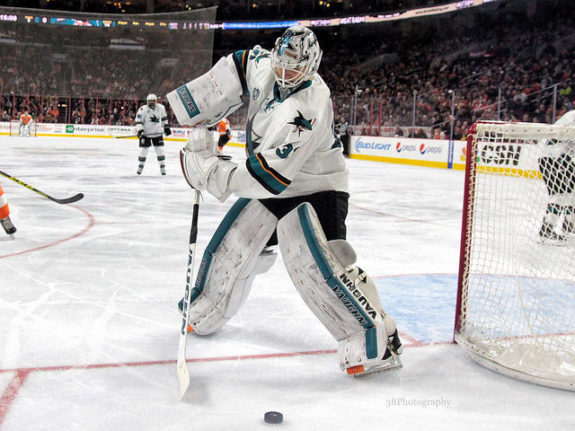
The Sharks allowed no odd-man rushes, and most of the Ducks’ play was forced to the outside in their offensive zone. Clean passing lanes and easy zone entries were not the norm for Anaheim. The Sharks took only two meaningful minor penalties and killed both power plays.
One Game
The Ducks are a good team, but a veteran Sharks team has seen their act before. The Ducks may get some teams off their game with their antics, but the Sharks aren’t as likely to get sucked into the extra stuff as perhaps other teams would. Before the series, I described these two teams as “battle-tested,” and the Ducks should know this. If they are to win the series, they need to know this. The truth is, it could have been significantly worse had the officials called a tight game.
Sharks head coach Peter DeBoer: “… they took six penalties and deserved every one of them.”
DeBoer made it clear the Sharks were going to play their own game, whether the Ducks adjusted or not.
Some will highlight Burns and his nine shots on goal. Or Pavelski’s two beautiful assists for Evander Kane’s two goals. But in a major way, it’s what the Sharks didn’t do that made the difference. They didn’t lose their poise.
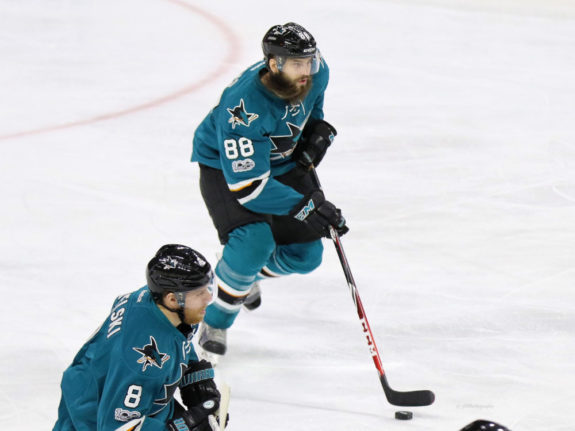
The Sharks won Game 1, mostly by letting the Ducks find ways to lose it. Credit to the Sharks for taking advantage. So which Ducks took meaningful penalties? Kesler took two (both for interference), while Getzlaf, Perry and Cogliano took one each. These are guys who know better. All have at least 60 games of playoff experience.
No series gets settled with the first game and this series is no different. Still, the Ducks will need to adjust their mindset, or they might be on thin ice sooner then they expect.